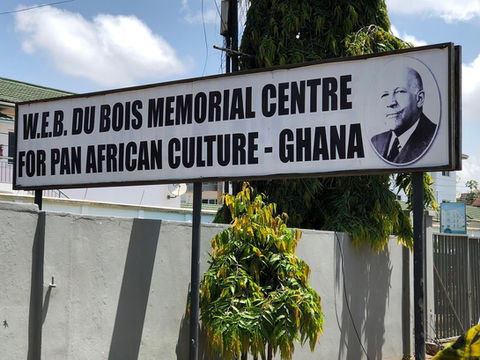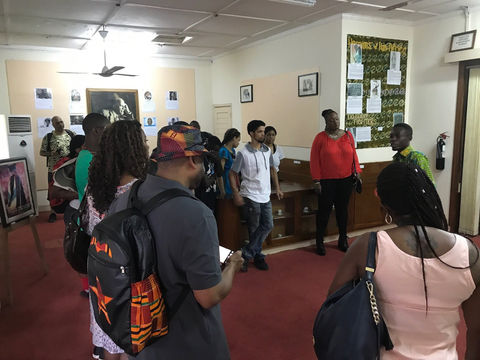
ABOUT
THE CENTRE
The W.E.B. Du Bois Memorial Centre for Pan-African Culture is a national monument and living memorial dedicated to the life and legacy of Dr. W.E.B. Du Bois. Established in 1985 in Accra, Ghana, the Centre preserves his former home and final resting place while serving as a hub for research, dialogue, and cultural exchange. It stands as both a tribute to his pioneering scholarship and activism, and a vibrant space where Pan-African ideals continue to inspire future generations.
MISSION & PURPOSE.
To preserve and advance the legacy of W.E.B. Du Bois through research, education, and cultural programming — demonstrating the practical application of Pan‑African ideals to contemporary social, political, economic, and cultural life.
OUR HISTORY
Declared a National Monument, House No. 22 First Circular Road was Du Bois’s residence during the final years of his life. He passed away here on August 27, 1963. The government of Ghana established the Centre on June 22, 1985, creating a museum, memorial, and learning hub.
THE MAN BEHIND THE LEGACY
Meet W.E.B. Du Bois
W.E.B. Du Bois (1868–1963) was an American sociologist, historian, author, civil rights activist, and Pan‑Africanist. A Harvard Ph.D. (the first African American to receive one), he taught at Atlanta University, co‑founded the NAACP, edited The Crisis, and organized multiple Pan‑African Congresses. In 1961 he moved to Ghana at President Kwame Nkrumah’s invitation to work on Encyclopaedia Africana, became a Ghanaian citizen, and is buried at the Centre in Accra.

JOURNEY THROUGH HISTORY.


A PLACE OF HONOR
The Mausoleum and Memorial at the Centre offers a tranquil space honoring Dr. W.E.B. Du Bois and his wife, Shirley Graham Du Bois. As the culmination of the site tour, it invites quiet reflection on their enduring legacy. Within the memorial, visitors can also view a collection of Du Bois’s academic regalia — including his Harvard Ph.D. hood (1896), honorary LLDs from Fisk and Howard Universities, and a Doctor of Letters awarded by the University of Ghana in 1963 — symbols of a lifetime dedicated to scholarship, activism, and Pan-African unity.














